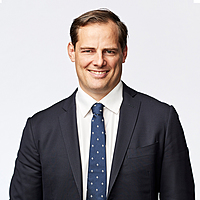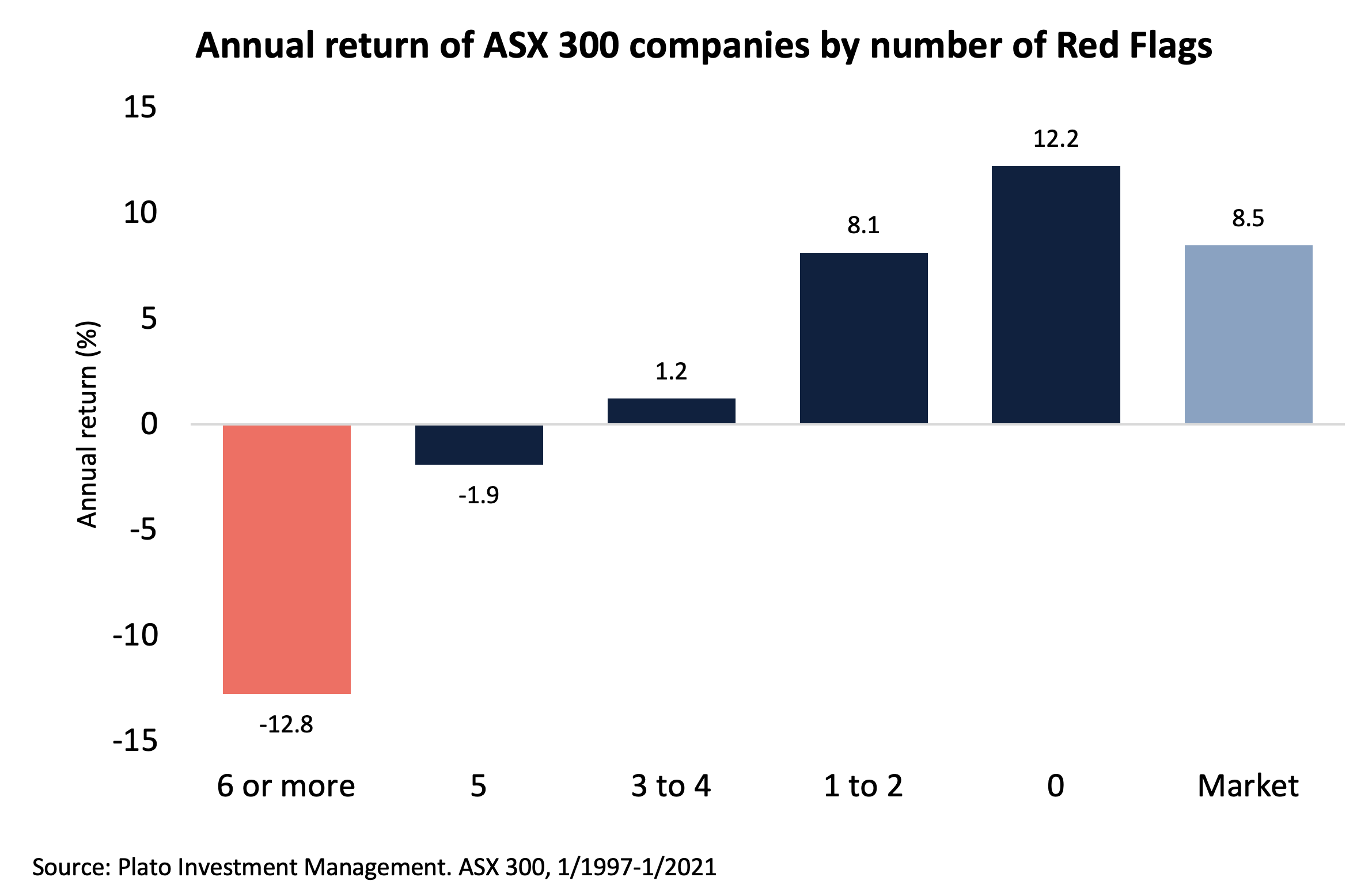The FTX red flags the world's most respected investors ignored
Just over a month ago, FTX crypto exchange founder, Sam Bankman-Fried’s (SBF) net-worth was $16 billion. Today, the 30-year old is shackled in a Bahamian prison that has a reputation for breaking even the most hardened criminal.
Over a Christmas drink, a client asked me whether Plato’s system of over 100 Red Flags (our model that identifies companies at risk of material underperformance) could have foreshadowed the collapse of the crypto exchange. A very interesting question, given reports the likes of Allan Howard, Sequoia, SoftBank, Paradigm, and the Ontario Teachers’ Pension Plan Board had all, in some way, backed the disastrous exchange.
Plato’s 100+ Red Flags are built for listed companies, however they are just as valid for analysing private entities like FTX. So, we compiled all the publicly available information on FTX, and modelled it through our Red Flags screening process.
These are the results.
Red Flag 1: Unusual corporate domicile
FTX was incorporated in Antigua and Barbuda and headquartered in the Bahamas. While the low corporate tax rate 25% was likely attractive, the light touch regulatory framework was surely the main driver behind the decision to set up shop in the Bahamas given FTX relocated from Hong Kong with a tax rate of 15%.
Red Flag 2: FTX used obscure auditors
Armanino LLP audited the U.S. operation and Prager Metis LLP audited the offshore operations.
A cynic might argue that the choice of these small outfits, with at times questionable track records, was a deliberate attempt by SBF to avoid the scrutiny of a Big Four firm (or even a second tier firm) accustomed to auditing companies with the level of complexity of FTX.
Because the two auditors are so small, the Public Company Accounting Oversight Board (PCAOB) only inspects them once every three years. It also begs the question, why use two different auditors for a consolidated set of accounts?
It's likely SBF did not want any one group to see all the pieces of the puzzle lest they solve it.
Red Flag 3: Lack of internal controls
Sometimes it is what people don’t say, rather than what they do, that is the most revealing.
The two auditors were largely silent on the internal controls of both FTX US and FTX Trading.
Maybe they were silent because there weren’t any to speak of! FTX’s new CEO, John J. Ray III, who was also brought in to clean up the Enron debacle said:
“From compromised systems integrity and faulty regulatory oversight abroad, to the concentration of control in the hands of a very small group of inexperienced, unsophisticated and potentially compromised individuals, this situation is unprecedented.”
Red flag 4: Related Party transactions
Fraud investigators will tell you that related party transactions are present in virtually every corporate fraud. Enron for example used related-party transactions and special-purpose entities to hide billions of dollars in losses.
Trading firm Alameda Research allegedly used FTX as an ATM, siphoning off customer funds and risking them on highly volatile and often illiquid investments. According to the Financial Times, FTX insiders, including SBF received over $1bn in loans and payments from Alameda.
The CEO of Alameda was none other than SBF’s on-again off-again girlfriend, Caroline Ellison.
Red Flag 5: Extremely high leverage
Alameda used large amounts of leverage to buy and sell crypto currencies and juice up their returns. What was the leverage ratio? Almost impossible to say, given the denominator of that leverage ratio was largely made up of FTX’s own FTT token that was minted out of thin air, at will.
Red Flag 6: Lack of a legitimate board
The FTX board, if it can even be described as such, leading up to the collapse lacked independent directors. In fact, it was made up of SBF, FTX executive Jonathan Cheesman, and a Bahamian lawyer.
When investors take large stakes in start-ups, it is par for the course for them to demand board positions. Private Equity firms were in thrall of SBF and did not sit on the board to provide oversight.
Following FTX’s collapse, Sequoia, an early backer of the likes of Apple, Cisco, and Google wrote down its $214 million investment in FTX to zero. As summarised by Forbes:
“When lightning struck, FTX’s Board of Directors actually consisted of just one person: the controlling shareholder, Mr. Bankman-Fried. Two others, one Jonathan Cheesman, and a nameless lawyer from Antigua & Barbuda, apparently dropped off the Board and left the company some months ago.”
Red Flag 7: FTX was a crypto company
Others may disagree, but in my view, crypto, at this point in time, fails to provide any real utility.
It is not a store of wealth, given its eye-watering volatility and the potential for hacks and collapses of exchanges like FTX. It is not a hedge against inflation, with plummeting crypto prices coinciding with runaway inflation. It is not environmentally friendly: mining of bitcoin alone consumes as much energy as the Netherlands each year. It is not an uncorrelated asset, with ever increasing correlations with risky assets. Its only real utility, it would seem, is speculation which is a polite word for gambling, and illicit activities including money laundering.
I think Charlie Munger said it best: “It’s like some venereal disease”. That is not to say though that some future use cases of the technology will not emerge, just as Spotify and Netflix emerged years later after pirating software like Napster.
The importance of identifying red flags
The chart below shows the performance of companies with varying numbers of Plato’s Red Flags for the ASX 300 since 1997.
Companies with 6 or more on average underperform the market by around 20% per year. FTX had seven, and we are only scratching the surface.
At Plato, before we take any position, long or short, the company is assessed using our 100+ Red Flags, helping us to avoid landmines on the long side, and identify attractive short ideas.
Running this analysis on FTX is not just for our team's amusement, it provides additional conviction in the effectiveness of the process, and a calamity exemplar for what will be many years to come.
Discover more about global equities investing with a 'red flags' mindset
Dr David Allen is the Portfolio Manager of the Plato Global Net Zero Hedge Fund. Visit the Plato website for more insights, or follow the team on LinkedIn.
1 topic


